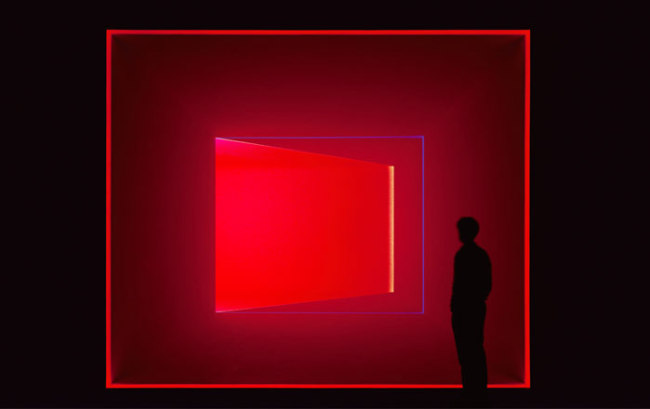WONJU, Gangwon Province -- Very much overshadowed by the neighboring snow-filled scenes of bliss in PyeongChang, the site of the upcoming 2018 Winter Olympics, Gangwon Province’s Wonju seeks to attract the attention of travelers.
The small-time city of Wonju, less than a two-hour drive from central Seoul, has always flown under the radar in terms of its tourism pull. While it does not have a reputation as one of the peninsula’s “must-see” destinations, it beckons a second look as an unlikely haven for history and art lovers.
Aside from its claim to fame as a skiing and golf resort destination, one of the city’s biggest selling points is the massive Museum SAN.
The aesthetically stunning museum sitting atop the Oakvalley region is an unexpected oasis of both fine and contemporary works of art, under the theme of “disconnect to connect.”
Opened in May 2013, the museum combines its surrounding natural elements and savvy architectural innovations to make the museum’s structure itself a work of art. Along with its collection of local artist gems, technology-infused interactive installation pieces and even its wall of Andy Warhol works, one of the museum’s most alluring aspects is its ongoing James Turrell exhibition -- a visual experience like none other.
 |
The “Wedgework” light installation at the James Turrell exhibition, being held at the Museum SAN in Wonju, Gangwon Province (Museum SAN) |
Turrell is an internationally acclaimed light and space artist whose collections have been seen worldwide. For more than four decades, he has created striking works that play with perceptions and the effect of light within his created art space.
Beginning his career in the 1960s in California as a pioneer in lighting and space work, his works have been exhibited in major museums, including the Guggenheim Museum, Whitney Museum of American Art and Museum of Contemporary Art in Los Angeles.
Turrell’s featured exhibition at the Museum SAN displays only four pieces: “Skyspace,” “Horizon Room,” “Wedgework” and “Ganzfeld.”
Despite only featuring four displays, the artist’s exhibition is no ordinary art installation, using lights and expertly designed spaces that lead minds to question sight and depth perception.
A highly sophisticated form of trick-eye artwork, his art is said to encourage a state of reflexive vision the artist refers to as “seeing yourself seeing.” Through his pieces, visitors can become aware of the function of their own senses and of light as a tangible substance.
One of the most highlighted pieces is the Skyspace, a naked-eye observatory that serves as a quiet and contemplative space for visitors. A glass-free skylight in the middle of a dome-shaped ceiling, where colored lights illuminate the walls, alters the way viewers see the sky above.
 |
The “Ganzfel” installation at the James Turrell exhibition, being held at the Museum SAN in Wonju, Gangwon Province (Museum SAN) |
Another stroke of modern artistic genius is the “Ganzfeld.” German for “complete field,” the Ganzfeld exhibition uses light and shadow to disguise space, allowing visitors to step through an illuminated space through a wall into a room that seemingly hadn’t existed before.
In addition to the Museum SAN, the Wonju Hanji Theme Park may also be a worthwhile visit for history and museum buffs alike. While referred to as a theme park, it should be noted that there are no thrilling amusement park adventures. The Wonju Hanji Theme Park is simply a museum dedicated to the dying art of hanji -- Korean traditional mulberry paper.
While it is far less architecturally impressive than the Museum SAN, its educational value far outweighs what it lacks in flashy outer appeal. From steaming, peeling, stripping and cutting to drying, soaking, beating and dissolving the inner bark of the mulberry tree, the process of making the seemingly simple sheets of paper will astound.
Ticket prices for the Museum SAN are 28,000 won ($24) for adults and 18,000 won for students. For more information, visit
www.museumsan.org.
Ticket prices to the Wonju Hanji Theme Park are 2,000 won for adults and 1,000 won for children. For more information, visit
www.hanjipark.com.
By Julie Jackson (
juliejackson@heraldcorp.com)








![[Weekender] Korea's traditional sauce culture gains global recognition](http://res.heraldm.com/phpwas/restmb_idxmake.php?idx=644&simg=/content/image/2024/11/21/20241121050153_0.jpg)
